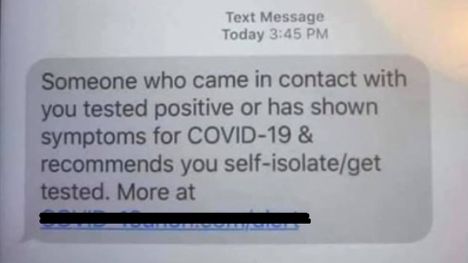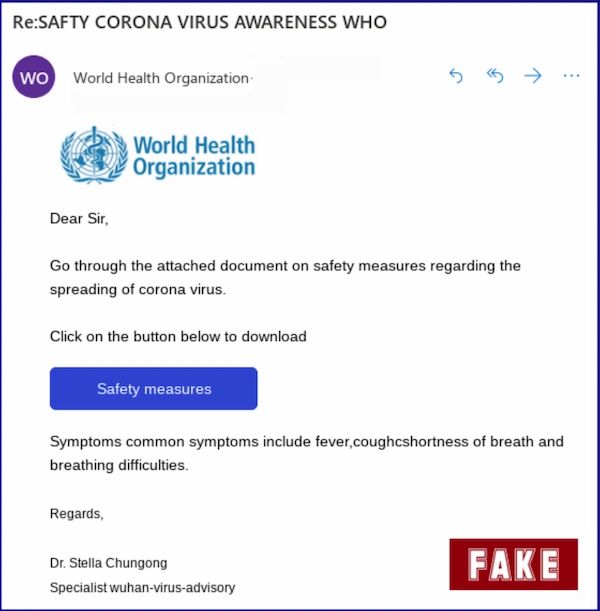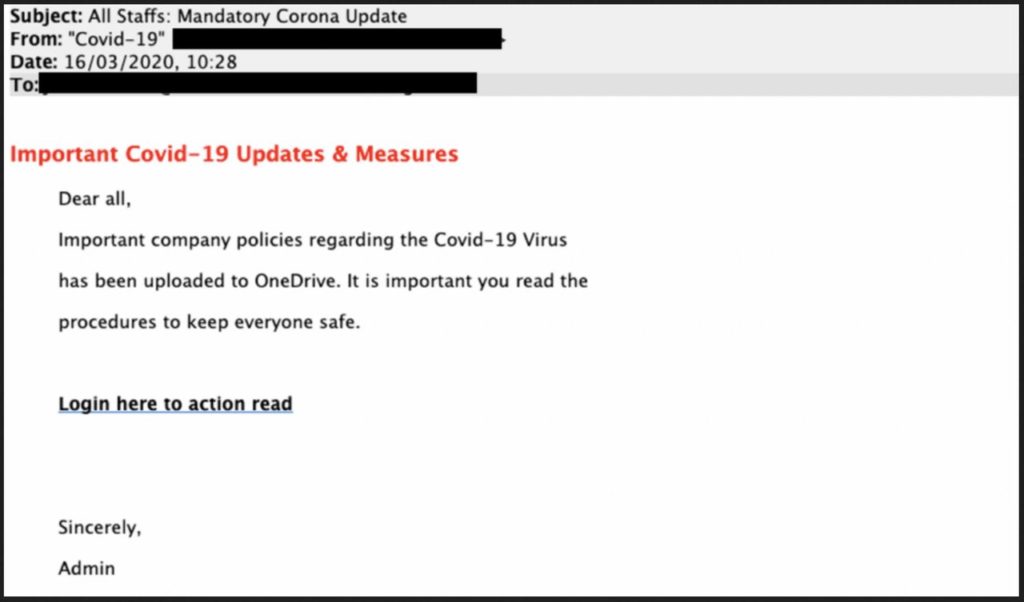The COVID-19 pandemic has brought about changes to just about every aspect of our lives – and our digital lives are at more risk than ever before. Scammers and thieves are using the coronavirus to target victims with new scams, and unfortunately, they’re working.
Keep yourself safe from these 4 common scams.
Contact Tracing Scams
Many states are mounting large-scale contact tracing efforts to help slow the spread of the coronavirus. Scammers and hackers are moving in quickly to take advantage of fear, making efforts both online and over the phone.

Fake apps and text messages are used to coerce victims into clicking on malicious links or handing over their personal and health information.
After an unsuspecting person shares their information, the criminals are then turning around and selling any PII (personally identifiable information) and PHI (personal health information) that they obtain on the dark web – which means it can lead directly to identity theft for those involved.
If you get a text message that appears to have come from a contact tracer or contact tracing scams, be sure to avoid clicking on any links and do not provide the person contacting you with any of your personal information.
Coronavirus Misinformation Scams
People are always looking for the most up to date information to keep themselves and their families healthy. Unsurprisingly, scammers are taking advantage of this, too.

Using emails that look like they’re from legitimate organizations, such as the World Health Organization, the Center for Disease Control, or the US Government, scammers are sending malware and phishing emails to millions of inboxes every day.
If you get an email from one of these organizations, visit the official website by directly entering their URL into your web browser to verify the message is legitimate.
Generally speaking these organizations will not send you a file through email, but if you believe it to be real, be sure to scan the file with an up-to-date virus scanner before opening the file.
Human Resources/Work From Home Email Scams
With so many employees working from home, important company information is being sent through emails. So what better time for scammers to ramp up their phishing email attempts?
An effective scam making the rounds is a phishing email that looks like it’s been sent from your company’s Human Resources office or from the CEO. The email claims to be communicating a new policy or company update regarding COVID-19.

If you look closely, the message has not been sent from a legitimate company email address, and clicking on any included links or attachments can put all of the personal information on your device at risk of being stolen.
Unemployment Benefits Identity Theft
As of now, 41 million Americans have filed for unemployment benefits since the coronavirus began to infect the United States.
Using stolen PII to fraudulently file for unemployment benefits in other’s names is not a new tactic for criminals, there is now a a drastic increase in the sheer numbers of potential targets.
Americans, recently furloughed or laid off, are applying for unemployment only to find that they’re being denied due to a “duplicate application” – a scammer has already beat them to the punch.
In some cases, has been receiving their unemployment benefit for months!
This is one form of identity theft that you won’t discover until the damage has already been done.
The only way you can protect yourself is to have something to fall back on, like an identity theft insurance plan from Identity Guard.
How to Spot Fake Coronavirus Scams and Stop Them
Most scams are based around the sense of urgency: the idea that if you don’t act now to change your password or confirm your credit card number, something bad will happen.
If you’re feeling pressured to act in a situation, ask yourself why, and then re-evaluate the legitimacy of the action you’re being asked to take.
If you find yourself in doubt of the legitimacy of an email or text, or are nervous that you’ve fallen victim to a coronavirus scam, Identity Guard can help.
With a fully US-based customer service team, they’ve seen – and can help you through it all.
How to Keep Your Information Safe from Scammers During the Coronavirus Pandemic
When looking for helpful information to keep you and your family healthy, falling prey to a malicious app or phishing scam is the last thing you want to be worried about. Here are some tips to help you stay safe while staying informed.
- Avoid doing web searches to find news and information
Web results can be misleading and phishing scams can sneak in, representing themselves as legitimate sources of information. Instead, go directly to the source; navigate directly to newspaper’s websites for news, or check the Federal Trade Commission, Center for Disease Control, and World Health Organization websites directly.
- Only download apps directly from the Google Play Store or Apple App Store
Anything not from the Google Play or Apple App Store could pose a security threat to your device and all of the information on it.
- Avoid clicking on suspicious links
If you’ve received an email or text message that feels even slightly suspicious, avoid clicking on any links provided. More information on avoiding suspicious links can be found in our article about avoiding phishing scams.
- Don’t confirm personal information unless you’re sure of who you’re speaking to
And by sure, we mean without a doubt. If you receive a phone call from your bank, healthcare provider, or government agency and are asked to confirm your personal information, hesitate. Ask if you can call them back. Then, find the verified customer service or contact number for the institution in question, and call them back to investigate the situation further.
- Sign up for Identity Guard
As scammers get better at what they do, it can be intimidating to take them on alone. You’re going to want someone in your corner. With an Identity Guard plan, you’ll have access to comprehensive identity monitoring, receive fast alerts regarding the use of your personal information, and have access to an expert customer service team who makes the process of resolving any security situation simple and personal.
Risty Benefits is a proud provider of Identity Guard! Call 605.338.1489, email contact us or visit www.ristybenefits.com for more information.
Source: “How To Protect Your Bank Account From 4 COVID Scams,” Identity Guard

